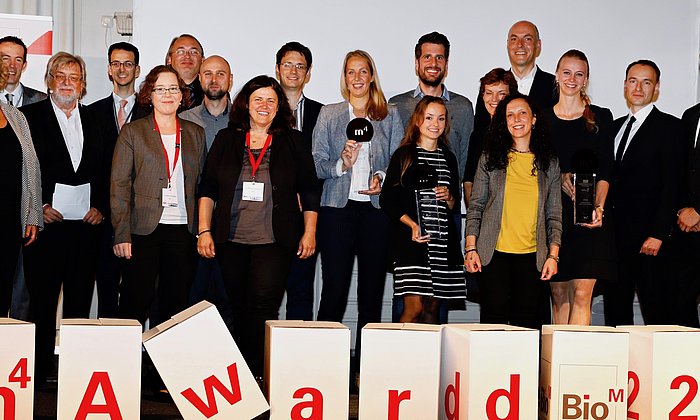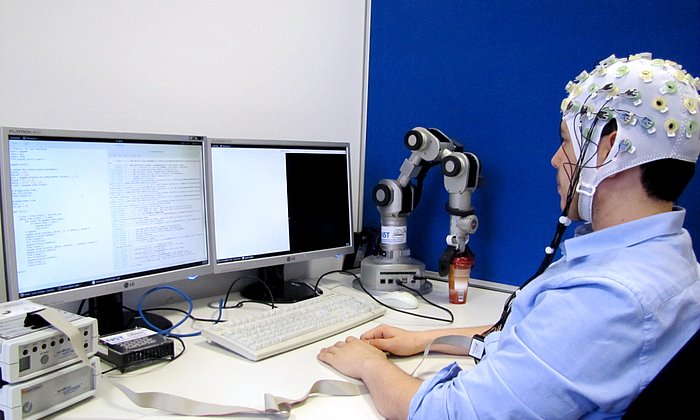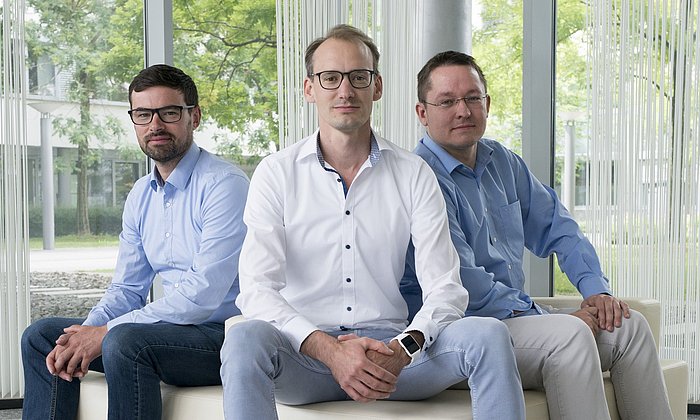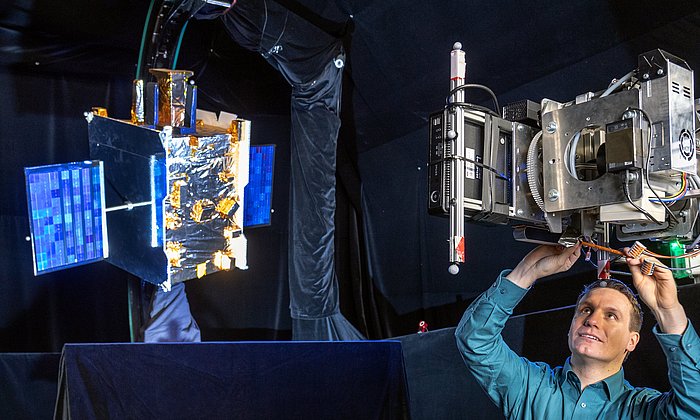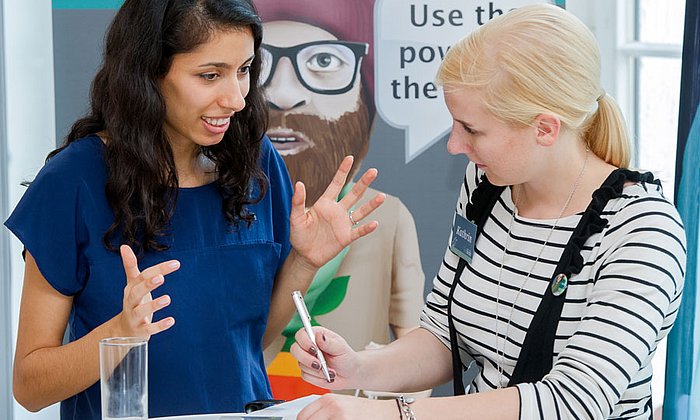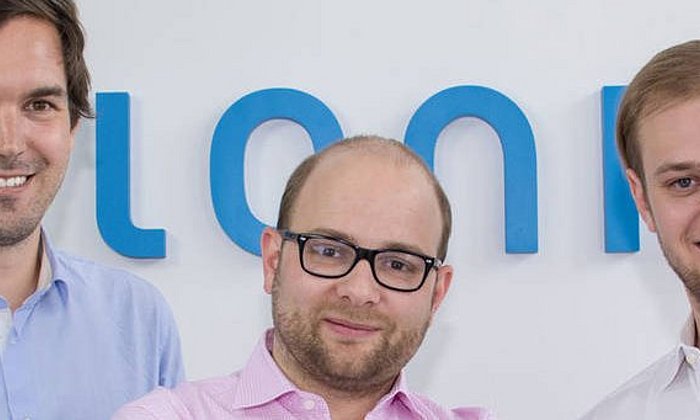Support for teams from medical technologies, robotics and agriculture
TUM IdeAward for outstanding business ideas
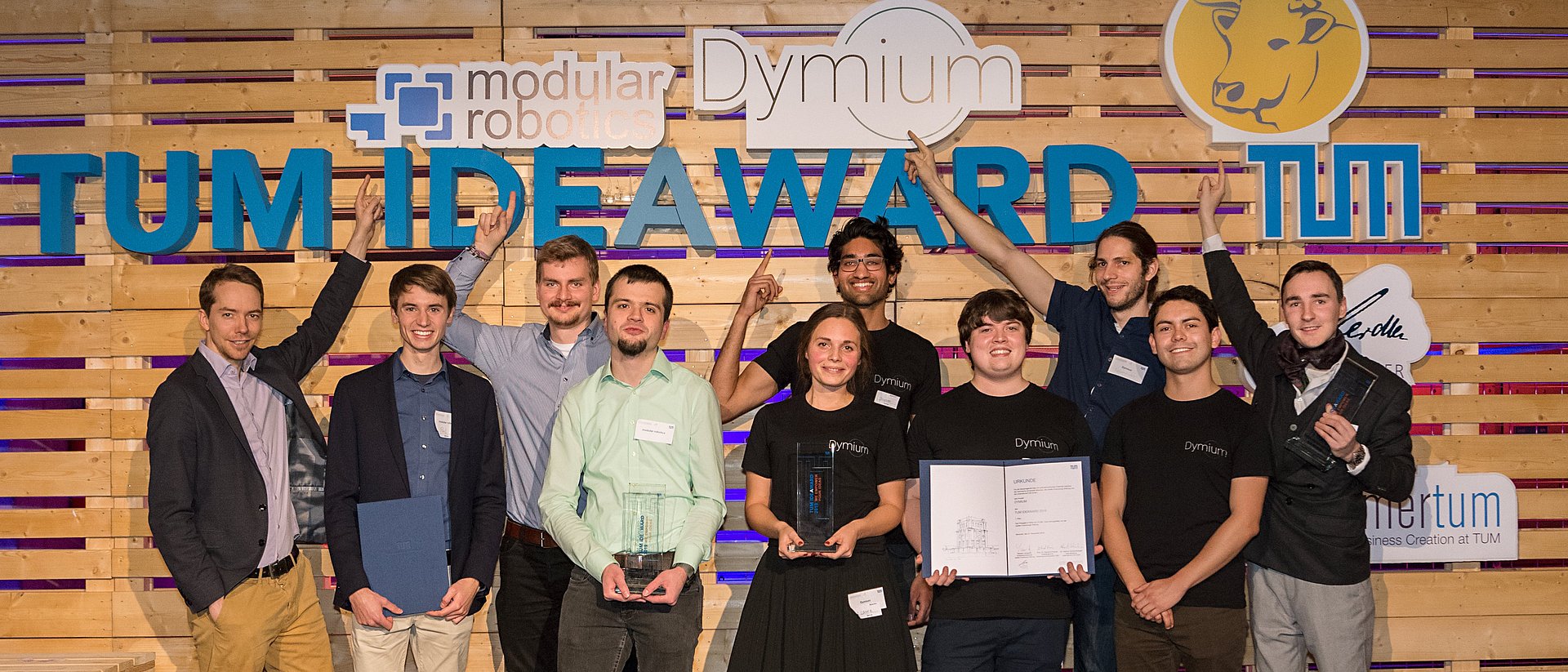
Which research results can lead to the development of a successful product? Who has the best idea for founding a start-up? More than 110 teams from the Technical University of Munich (TUM) entered the competition for this year's IdeAward. Ten finalists presented themselves in the university's Audimax yesterday, three prize winners were chosen by a jury. The IdeAward is presented by TUM, UnternehmerTUM, the Center for Innovation and Business Creation, and the Zeidler Research Foundation, which funds the award with a cash prize totaling 37,500 euros.
1st prize: Dymium
Every year thousands of people in Germany alone are treated for kidney stones, which are usually pulverized. The problem: The residual pieces of the stones then have to be individually located and removed, a time-consuming and error-prone process. Fragments left behind may eventually develop into new kidney stones. Dymium is developing a way to reliably remove the fragments: A fluid magnetizes the pieces of the kidney stone which are then drawn out of the kidney using magnetic surgical instruments.
The highly interdisciplinary team consisting of four students from the fields biomedical computing, physics, industrial design and management is preparing to form a company.
2nd prize: modular robotics
Smaller enterprises and companies that produce a changing range of products often find the use of robots too costly and complicated. The team at modular robotics has developed a system with which a wide range of different robots can be easily created with only few modules and redesigned without significant effort. These robots are able to program their (new) control system themselves and are therefore ready to use right away.
In the modular robotics team scientists from the Chair of Robotics, Artificial Intelligence and Embedded Systems work together with students. The members are specialized in various areas of robotics and information technologies.
3rd prize: Heat detection for cattle
In cattle farming it is important to properly detect when cows are in heat so that they can be inseminated at the right time. In large companies and on farms where the cows are spread out across wide areas, this task requires the aid of technology. Devices are often attached to the cows' collars to detect movements typical of the fertility period and alarm the farmer by radio. Here Daniel Maier wants to implement a sensor with several advantages over existing technologies: It costs less, is more durable and consumes significantly less energy. In addition to this benefit for the farm operation, it also makes things better for the animal: The sensor is only as big as a two-euro piece and therefore weighs less.
Daniel Maier studies Electrical Engineering and Information Technologies.
Video of the award ceremony
Support from the business model to the IPO
Every year more than 70 companies are founded at TUM. TUM and UnternehmerTUM support start-ups with programs that are precisely custom-tailored to the individual founding phases, from the conceptual design of a business model to management training, from market entry to a possible IPO. As many as 30 teams can use offices in the TUM Incubator to prepare the launch of their companies; TUM takes the most promising among them to Silicon Valley for two weeks. UnternehmerTUM invests in highly promising technology companies through its own venture capital fund UVC. The UnternehmerTUM MakerSpace and Bio.Kitchen provide a 1,500 square meter high-tech prototyping workshop and a biotechnology lab. According to the "Start-up Radar", this is the best support available at any major German university.
Technical University of Munich
Corporate Communications Center
- Klaus Becker
- klaus.becker@tum.de
- presse@tum.de
- Teamwebsite
